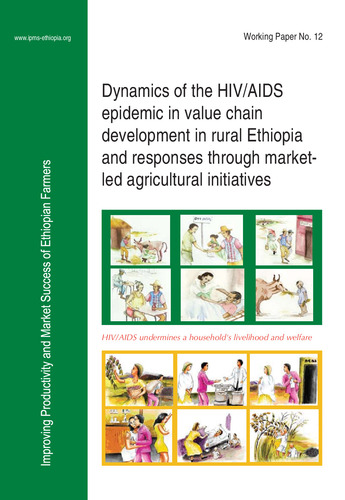Dynamics of the HIV/AIDS epidemic in value chain development in rural Ethiopia and responses through market-led agricultural initiatives
Abstract
This paper discusses the rural HIV epidemic in the context of the Improving Productivity and Market Successes (IPMS) of Ethiopian Farmers' Project being implemented by the International Livestock Research Institute and the Ministry of Agriculture and Rural Development. Its purpose is to contribute to the knowledge base about HIV/AIDS in the agricultural sector by, firstly, increasing understanding about the HIV/AIDS in the context of rural communities and, secondly, identifying opportunities to minimize the risk of HIV infection and mitigate the impacts of AIDS in rural communities through market-led agricultural initiatives A fieldwork was conducted to examine three questions: What are the sources of risk of HIV infection and who is at risk? To what extent does AIDS already impact rural communities and their livelihood systems? What might a production and market-oriented project, such as IPMS, offer to address the epidemic? The first section of this working paper is introduction. The second section examines three sources of risk of infection associated with the urban hinterland, the movement of people into and from rural communities, and cultural traditions and practices within rural communities, and concludes with a summary of risk by person. The third section draws on field experience from the PLWs (Pilot Learning Woreda) to demonstrate the potential effect of market-led agricultural growth on hastening the spread of HIV by examining six principal commodity value chains, namely cereals, oilseeds, spices, vegetables, coffee and livestock. The extent to which AIDS has already impacted the rural communities in the 10 PLWs is examined in section four, and sources of vulnerability to future impacts of AIDS are identified. The final section summarizes the main implications of the disease for IPMS and discusses a range of opportunities for reducing the risk of HIV infection and mitigating the impacts of AIDS by improving agricultural productivity and market linkages. They are illustrated with examples of innovative approaches that have been developed, field-tested and implemented by IPMS in several woredas, often in partnership with other organizations.

